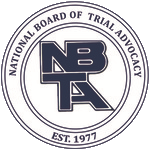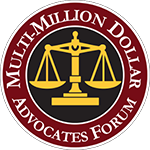
If you are concerned about the well-being of a friend or family member residing in a nursing home, you may be looking into the process of filing a concern or complaint. This article provides guidance about how to report nursing home abuse and neglect in Kentucky.
Remember that the information below is intended for situations in which the abuse or neglect has already happened or is ongoing. In any situation in which a person’s life may be in immediate danger, call 911 directly.
For those seeking more information about nursing home abuse laws in Kentucky, please refer to our Nursing Home Abuse Resource Guide. If you have further questions, one of our nursing home abuse attorneys is available with answers at Golden Law Office.
How Do I Report Nursing Home Abuse in the State of Kentucky?
Kentucky is a mandatory reporting state. According to the Elder Abuse division of the Kentucky Cabinet for Health and Family Services (CHFS), this means that if you suspect elder abuse, you are legally required to report it to the state. Reports may be made anonymously and over the phone or online 24/7. This can be done by contacting:
- Kentucky Adult Protective Services. In non-emergency situations in which you suspect abuse or neglect, contact Adult Protective Services (part of the Kentucky Department for Community Based Services (DCBS) to make an investigation. You can make a report online or by calling 1-877-597-2331.
There are other state agencies and organizations that can help in situations of suspected nursing home abuse. The resources listed below work to protect older adults from abuse, neglect, and exploitation.
- Kentucky Office of the Inspector General. This is the agency responsible for the regulation and licensing of nursing homes and long-term care facilities. The office can be reached at 1-502-564-7963.
- Kentucky Office of the Attorney General’s Abuse Tip Line. Reports of abuse can be made to the Office of the Attorney General anonymously at 1-877-ABUSE-TIP (1-877-228-7384).
- Kentucky Long-Term Care Ombudsman (LTCO) Program. The LTCO program advocates for residents of nursing homes. You can find your program by county online or by calling 1-859-277-9215.
How Do I Know If I Should Report Nursing Home Abuse?
It’s not always easy knowing when and if you should report nursing home abuse. When you suspect abuse, you rarely have concrete evidence that abuse has actually taken place. It’s not your job to conduct an investigation to uncover abuse—that’s the job of the government bodies tasked with following up on abuse reports. But when you report suspected abuse, you take the most important step in achieving justice for nursing home abuse victims—the first step.
If you notice a troubling sign but fail to report your concerns—perhaps due to uncertainty or fear—you may be turning your back on a situation causing severe harm to one or more older adult victims. The answers to questions like these will help tell you if you need to take steps to report the incident or situation to the proper authorities:
- Could someone’s life be in danger if I don’t say anything?
- Is this a situation I would want to happen to myself or other people?
- Would I look further into this if it was my job to investigate?
- Do I feel good about walking away from this situation?
- Would I recommend this nursing home to someone I love?
- Did I see something that could be a sign of abuse, neglect, or exploitation?
The Kentucky CFHS and the Office of the Attorney General publish information about how to protect nursing home residents by being alert to signs of abuse, neglect, or exploitation in seniors. One of the most important things you can do is learn the signs of abuse, and be actively involved in your aging loved one’s life so that you can notice any signs as soon as they appear.
What Are the Signs of Nursing Home Abuse, Neglect, and Exploitation?
Let’s talk more about the signs of nursing home abuse, neglect, and exploitation. While these three terms are often used together, there are differences between them. When discussing elder mistreatment, the terms are generally used to mean:
- Abuse – an action which causes harm to an older adult, including physical abuse, sexual abuse, emotional abuse, verbal abuse, and psychological abuse
- Neglect – a failure to provide the necessary care an older adult requires
- Exploitation – a misuse of an older adult’s resources (usually financial) without their consent
When we discuss reporting elder abuse, all of the above behaviors are included. There are some indicators of abuse, neglect, and exploitation that are more obvious than others, so it is important to be aware of all the warning signs.
Many of us have a tendency to think that abuse is easy to identify, but that is not always the case. Sometimes, what may seem like a sign of aging or illness is actually a symptom of physical or psychological abuse. Abuse perpetrators often know how to disguise the signs of abuse so they go unnoticed by others. Be aware of patterns or sudden changes that could indicate something is affecting your loved one’s health.
If you observe any of the following red flags, there may be reason to believe that your loved one’s nursing home is allowing abuse or neglect to occur.
The nursing home resident exhibits:
- Unexplained or frequent bruising or broken bones
- Malnutrition and dehydration
- Bedsores
- Mood changes, silence, withdrawal, or noticeable anxiety or fear
- Loss of bladder control
- Lethargy or a constant desire to sleep
- Torn clothing, broken eyeglasses, or other damaged property
- Signs of physical restraint
- Poor oral hygiene
- Depression, confusion, or lack of eye contact
- Changes in behavior when a caretaker enters the room
- Unchanged clothing and clothes inappropriate for the season
Or at the nursing home you notice:
- Dirty, unmaintained facilities
- Falling hazards like broken railings and objects lying on the floor
- Stressed, unhappy, and unfriendly staff members
- Staff members who are unresponsive or hard to reach
- Poor food quality
- Residents who are unbathed, with dirty clothes and poor hygiene
- Wrongfully administered medication
- Residents left unmonitored for long periods of time
- Indications that a resident’s finances are being misused (unexplained purchases, large withdrawals, changed names on account and wills, unpaid bills)
Spending time with your loved one is the best way to prevent abuse. Try to show up at your friend or family member’s nursing home often and unannounced. Being actively involved in your loved one’s life is positive for both of you in many ways. And this habit will also allow you the opportunity to notice any troubling changes if they occur.
Sadly, it is usually the case that residents who receive few visitors are the ones most vulnerable to neglect, abuse, or financial exploitation. In these cases, there is less accountability when family members don’t stay informed about the living situation of their aging relative. And an abuse perpetrator is less likely to abuse a resident who has frequent visitors. When you take the time to show care and concern about your loved one’s life and living environment—and speak up when you see something you don’t think is right—you are also helping the other residents of the nursing home.
What Does a Nursing Home Abuse Lawyer Do?
Even if you’ve worked hard to determine the safest nursing home for your loved one, you may find yourself in a situation in which you need to take legal action against a negligent facility. Nursing home abuse lawyers work to fight against the mistreatment of older adults living in nursing homes. Visible, legal accountability is sometimes the best way to bring attention to a serious problem that would otherwise continue unchecked.
It takes the involvement of all of us to work together to prevent elder abuse. Nursing home abuse attorneys are a specialized subset of personal injury lawyers who dedicate their practice to protecting older adults from injustice. But the role of family members who bring awareness to this major problem is just as important.
If you believe someone you know may have been the victim of nursing home abuse, we invite you to reach out to Golden Law Office to schedule a free case evaluation. Our office can set up a meeting to discuss how we may be able to help you and your family.





